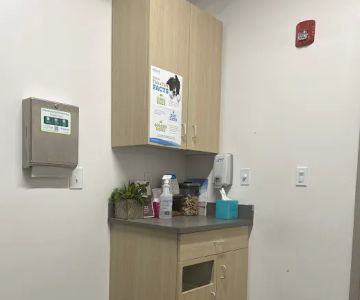- Understanding Cat Respiratory Infections
- Common Causes and Symptoms
- Natural Remedies for Cat Respiratory Infections
- Implementing a Holistic Care Approach
- When to See a Veterinarian
- Real-Life Case Study
- Finding Trusted Products and Support
1. Understanding Cat Respiratory Infections
Respiratory infections are among the most common health issues affecting cats, especially young kittens and older felines. These infections often involve the upper respiratory tract, including the nose, throat, and sinuses, but can sometimes affect the lungs. Understanding the nature of these infections helps cat owners better care for their pets and choose the right treatment methods.
Typically caused by viruses or bacteria, cat respiratory infections can vary in severity from mild sneezing and nasal discharge to serious complications like pneumonia. Prompt attention to symptoms and supportive care are essential to ensure a smooth recovery.
1.1 Why Natural Remedies Matter
While veterinary intervention is critical in many cases, natural remedies can complement conventional treatment by strengthening the cat’s immune system, easing symptoms, and speeding recovery. Natural remedies often emphasize gentle, non-invasive support, making them ideal for long-term care and prevention.
2. Common Causes and Symptoms
Common pathogens causing respiratory infections in cats include feline herpesvirus, calicivirus, and secondary bacterial infections. Stress, poor nutrition, and crowded living conditions can increase susceptibility.
Symptoms to watch for include:
- Sneezing and coughing
- Runny or congested nose
- Watery or inflamed eyes
- Loss of appetite and lethargy
- Difficulty breathing or open-mouth breathing in severe cases
Recognizing these symptoms early is key to providing effective care.
3. Natural Remedies for Cat Respiratory Infections
Several natural remedies have shown promise in alleviating respiratory symptoms and supporting healing. It is important to note that these remedies should be used with care and ideally under veterinary guidance.
3.1 Herbal Support
Herbs such as echinacea, licorice root, and slippery elm have immune-boosting and soothing properties. Echinacea supports the immune system, while slippery elm helps soothe irritated mucous membranes in the respiratory tract.
3.2 Nutritional Supplements
Omega-3 fatty acids from fish oil can reduce inflammation, and antioxidants such as vitamin C and E support overall immune function. Probiotics also contribute by maintaining gut health, which is closely linked to immune response.
3.3 Environmental Adjustments
Maintaining good air quality is crucial. Using a humidifier can ease nasal congestion, and avoiding irritants such as cigarette smoke or strong perfumes reduces further respiratory stress.
3.4 Hydration and Rest
Encouraging your cat to drink plenty of fluids helps thin mucus and keeps the respiratory tract moist. Providing a warm, quiet resting area aids recovery by reducing stress and energy expenditure.
4. Implementing a Holistic Care Approach
A holistic approach combines natural remedies with attentive care routines. Regular monitoring of symptoms, gentle cleaning of discharge around eyes and nose, and stress reduction strategies such as playtime and affection are all part of nurturing recovery.
Consistency and patience are essential; natural remedies often work gradually but can provide sustainable health benefits.
5. When to See a Veterinarian
While natural remedies can help mild cases, any signs of worsening symptoms such as difficulty breathing, refusal to eat, or persistent fever require prompt veterinary evaluation. Infections sometimes need antibiotics or other medical treatments that natural remedies cannot replace.
Consulting with a professional ensures your cat receives the best possible care and avoids complications.
6. Real-Life Case Study
Emma, a cat owner, noticed her cat Max developed sneezing and watery eyes during the cold season. Rather than rushing to antibiotics immediately, she introduced several natural remedies recommended by Hidden Brook Veterinary, including using a humidifier and supplementing Max’s diet with omega-3 fish oil and herbal teas designed for cats.
Over two weeks, Max’s symptoms gradually improved, and he regained his usual playful energy. Emma credits the natural approach combined with regular veterinary check-ups for Max’s swift recovery. This case shows how natural remedies, when used thoughtfully, can enhance feline respiratory health.
7. Finding Trusted Products and Support
For those interested in natural remedies for cat respiratory infections, Hidden Brook Veterinary provides carefully selected supplements, herbal formulas, and expert advice tailored to your cat’s unique needs. Their team helps pet owners navigate safe, effective options to complement traditional veterinary care.
By combining professional guidance with natural solutions, you can support your cat’s respiratory health and overall well-being in a balanced and compassionate way.












